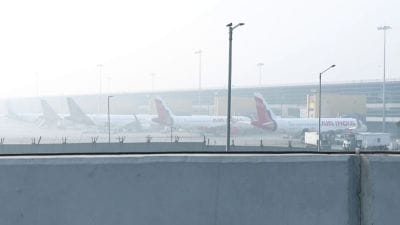Games China plays
Expect China to up the ante after the Olympic games in August 2008, and the attempt will be more flagrant if India8217;s political centre is perceived as weak

The 4,056 km long frontier between India and China remains unmarked on map and ground. Talks to resolve the border issue have taken place over the last 20 years at different levels of officialdom without any fruitful result.
Between 2002 and 2005 a degree of sanguineness did develop leading to hopes of an early breakthrough. But talks again started to cool off, mainly because of closer Indo-US ties and the possibility of the nuclear deal. In 2006, prior to the visit of President Hu Jintao to New Delhi, a highly provocative statement was given out by the Chinese Ambassador claiming the whole of Arunachal Pradesh as Chinese territory. Soon after this came the refusal of visa by the Chinese to an Indian civil service officer belonging to Arunachal on the specious ground that Arunachal belonged to China. Then, the Chinese protest on the visit of Prime Minister Manmohan Singh to Arunachal. Parallel to these developments is an increase in the intrusions of Chinese troops across the line of actual control and the Sikkim cairn issue IE, May 18.
Historically, China has settled her border disputes with other countries when it has perceived the adversary to be weak. So it would appear that China has pushed the border issue to the backburner and is in no hurry to resolve it except on its own terms. Therefore there would be periodic attempts to make humiliating claims, questioning of Indian sovereignty on Arunachal and parts of Ladakh. Could it, in the extreme case, also lead to a border conflict?
The strategic growth of the Indian economy and the country8217;s recent attempts to develop closer ties with the US are viewed with deep suspicion by China. The Chinese fear that growing US ties with India and the nuclear deal will bring about a shift in the balance of power in South and South East Asia which would be against China8217;s strategic interests.
We should expect China to up the ante after the Olympic games in August 2008. This could lead to some border skirmishes. Whether this starts in the autumn of 2008 or after the next general elections will depend on the Chinese calculus as to who or which parties are likely to form the next government. The attempt will be more flagrant if India8217;s political centre is perceived as weak and pusillanimous.
Although the probability of an all-out border war is low, a series of border skirmishes is a distinct possibility. One could ask why China should resort to a conflict. After all, its economy is doing fabulously and it could build its strength further without any distractions. Should it, however, resort to provoking a border conflict and if 8212; it is a big if 8212; it comes out successful, what does it gain? The answer is that in the perceived struggle for rivalry in South and South East Asia, the Indian image can be badly tarnished.
A limited intrusion is possible by both sides, which may remain undetected for a short period, due to the extremely rugged terrain. Such intrusions would have to be vacated thereafter physically. So, the first consideration for the Chinese will be, can they get away with it? I think not. The Indian Armed Forces are no push-over. The second consideration is the image of China, which they have tried to assiduously build, of being a responsible and sober power. Third, there will be larger international repercussions with adverse diplomatic fallout.
Taking the worst case, China may actually like to engineer a border conflict and the Indian political, diplomatic and military leadership must prepare for it. Along the border there are a number of areas where the Chinese enjoy geographical, logistical and tactical advantages. The Indian Army is well aware of them and has contingency plans to counter such a venture. Though neither side will like to escalate the conflict into a major war, the reactions, particularly in a limited and localised conflict, will have to be robust and swift.
Given the above scenario, howsoever remote it may appear today, the political leadership should sit down with the military leaders and 8216;wargame8217; different scenarios upto their logical conclusions. Shying away from such a possibility may result in the classic predicament of the ostrich in the sand.
The writer is former vice chief of army staff
- 01
- 02
- 03
- 04
- 05































